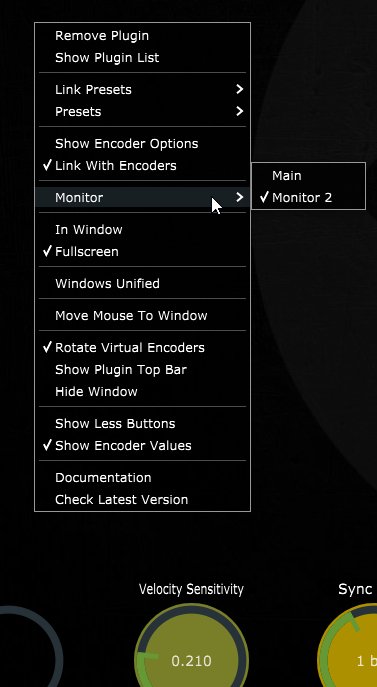2. Display and Touch Setup on Mac OS
Important information on how to setup the display and touch function for the Mac.
- 1. Mac - Display and Touch Setup
- 2. MacOS Full screen mode and Window mode
- 3. Stylus pen for the touch screen
- 4. Mac - Hide the MacOS top bar from the MP Controller
- 5. MacOS Dock appears on the display of the MP Controller
- 6. Select the target monitor for the MP Controller
1. Mac - Display and Touch Setup
Display configuration on the Mac (all models)
The resolution of the monitor should be set to 1920 x 1080.
If it is not set automatically by the OS, you can set it manually under Settings > Displays.
Set the monitor as an external display in Displays on the Mac. (not mirror)
The monitor frequency should be automatically set to 60Hz.
In some cases, the Mac OS may set it to 75Hz and this will cause the display to not be able to show any video. The refresh rate settings on MacOS are hidden — In Display Settings, be sure to hold the Option key when clicking "Scaled" to see the refresh rate option.
How to disable the Mac top bar on the MP Controller display![]()
System Preferences > Mission Control. Displays Have Separate Spaces will be selected. Simply deselect. See in detail here
Reveal All Possible Screen Resolutions for a Display Connected to a Mac
-
Open System Preferences from the Apple menu in Mac OS X
-
Click on “Display”
-
Under the ‘Display’ tab, hold down the OPTION / ALT key while you press on the ‘Scaled’ button alongside Resolution to reveal all available screen resolution options for the display
-
Choose the resolution desired from the complete list of available screen resolutions, then close out of System Preferences as usual
See in more details in this article here
![]()
Model 1A+/2A Touch Function
The TouchScreen should show in the System Report under USB
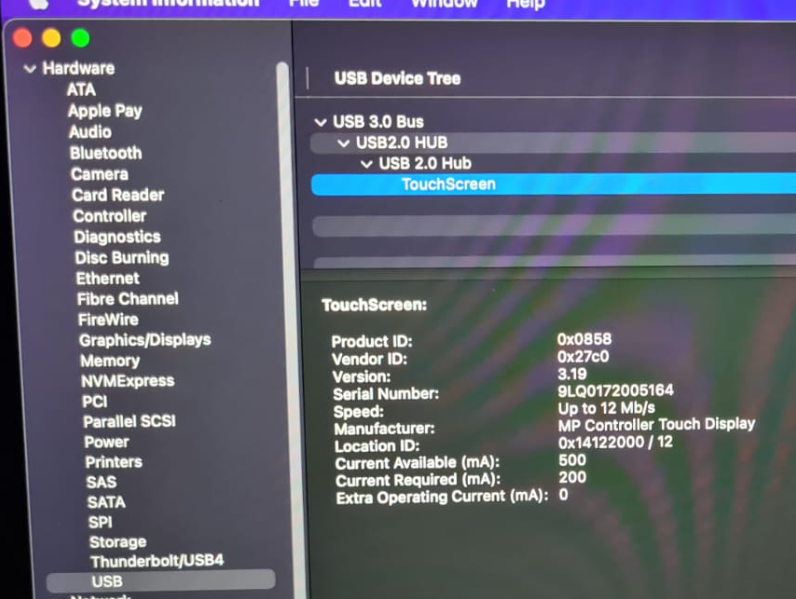
If it does not show up in the System Report, it is due to a connection issue.
Connect the USB-A to USB-C cable provided directly on the Mac. (not through a hub or docking station or the Y-cable) and reopen the System Report.
For further troubleshooting see here.
If the touch works but affects your other display, then you need to move the mouse pointer to the MP Controller display. This can be done automatically when you touch the MP Controller display instead of manually having to move the cursor by using UPDD.
Additionally, here are some other utilities that can move the mouse cursor to other displays.
![]()
Model 1A Touch Function
The Touch hardware shows as "Multi-Touch by G2TSP" in the System Report.
UPDD is required for touch functionality on MacOS Catalina and later for Model 1A. See here
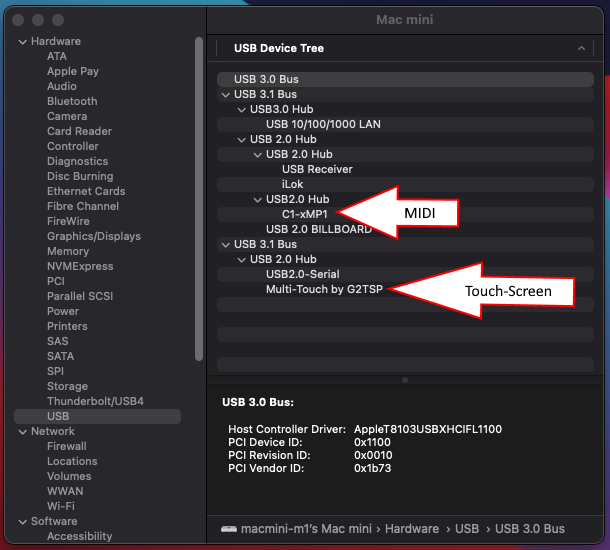
If it does not show up in the System Report, it is a connection issue. Connect the cable provided directly on the Mac (not through a hub or docking station or the Y-cable) and reload the System Report.
Using a stylus with the touchscreen:
The touch screen does not work a stylus but it does work with pens that have a rubber tip.
These are Capacitive Stylus Pens, as this one
2. MacOS Full screen mode and Window mode
You can select this option from the right click menu

We recommend running the MP Host "In Window" mode and disable the MacOS top bar for secondary displays via Mission Control, Spaces. See how to do this here
If Spaces is not disabled then "In Window" mode will show up the top bar of Mac OS on top of the MP Host window.

If you run the MP Host in Fullscreen mode, then the top bar will not show up on any display.
3. Stylus pen for the touch screen
You can use a stylus pen made for capacitive touch screens. This pen has a rubber rounded end like:
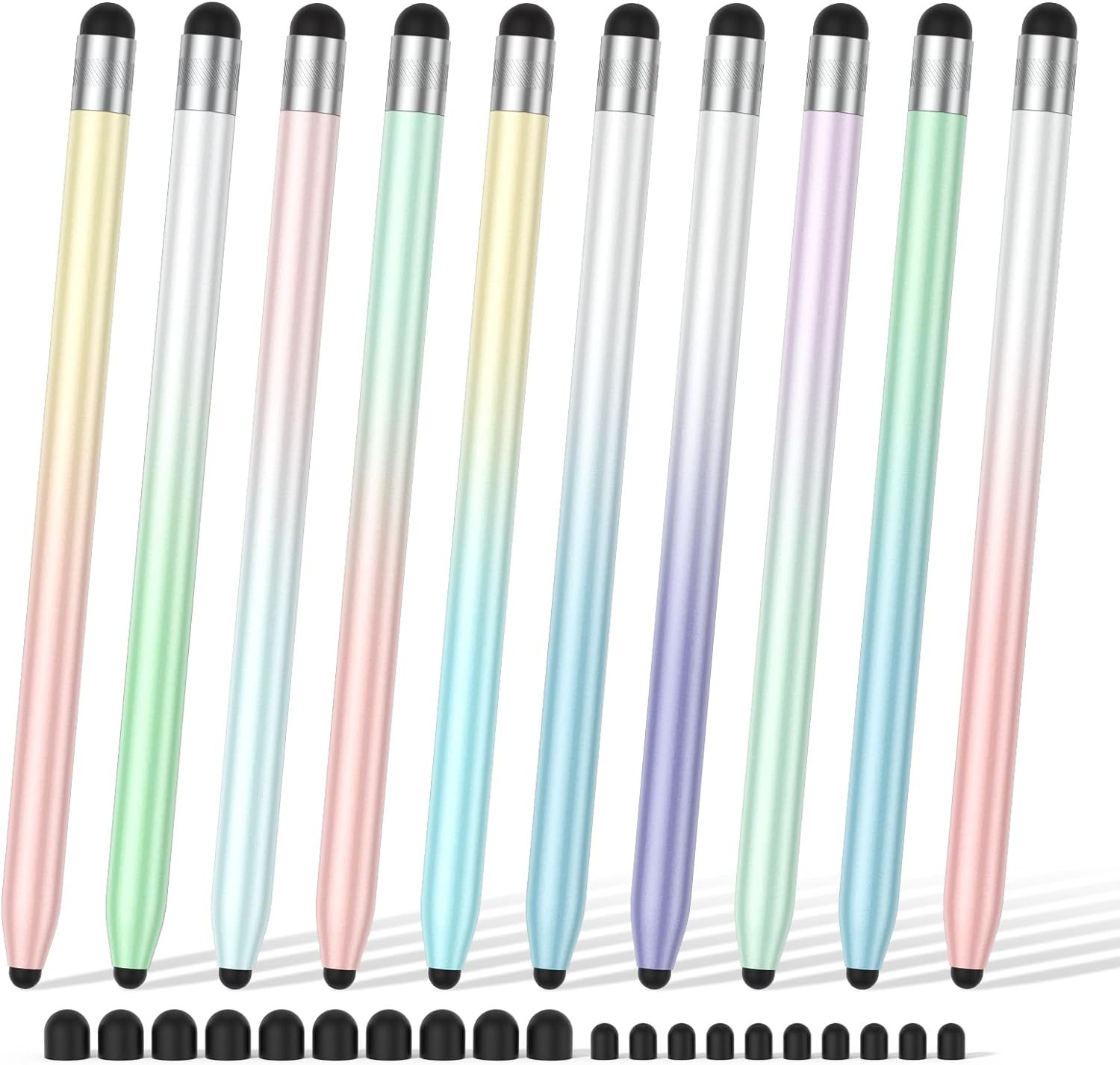
for example https://www.amazon.com/Touchscreen-Sensitivity-Precision-Capacitive-Smartphone/dp/B0CSNPHQ4G
4. Mac - Hide the MacOS top bar from the MP Controller
In Mission Control, under System Settings, disable the option: "Displays have separate spaces"
Choose "Log Out..." from the Apple Menu
Log back in as you would normally.
See tutorial video on YouTube
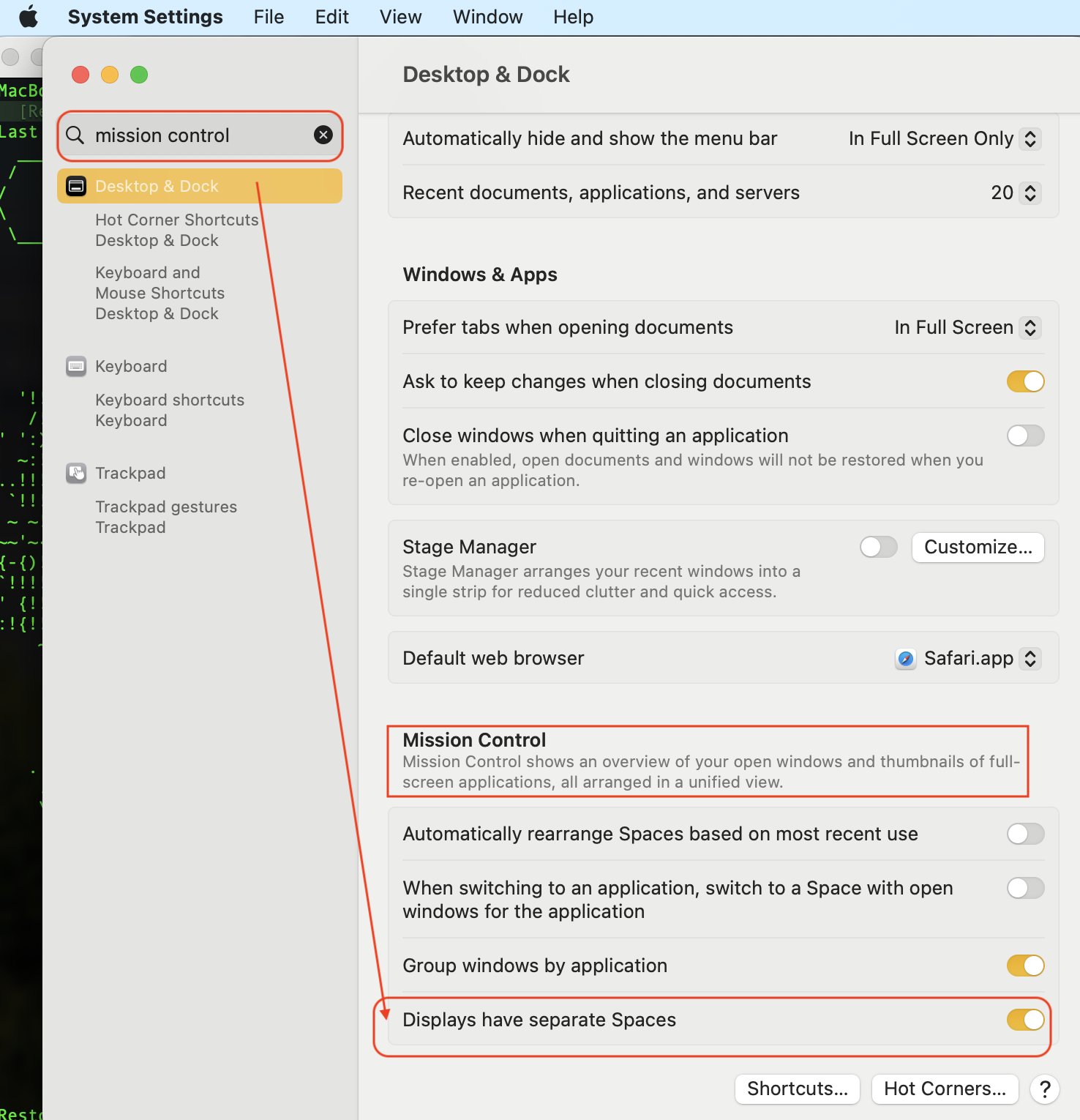
5. MacOS Dock appears on the display of the MP Controller
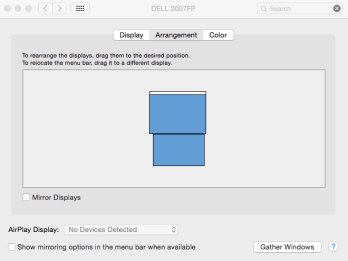
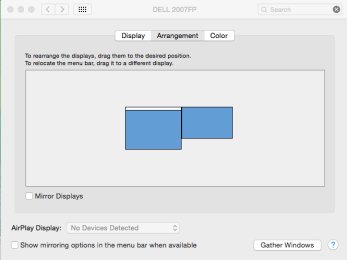
6. Select the target monitor for the MP Controller
The first time you load the MP Host plugin, it will be displayed on your main monitor.
You need to select the target monitor from the big window of the MP Host plugin.
Right click anywhere on the main black area of the big window and from the menu under Monitor, select the target monitor which will be the last monitor in the list.
